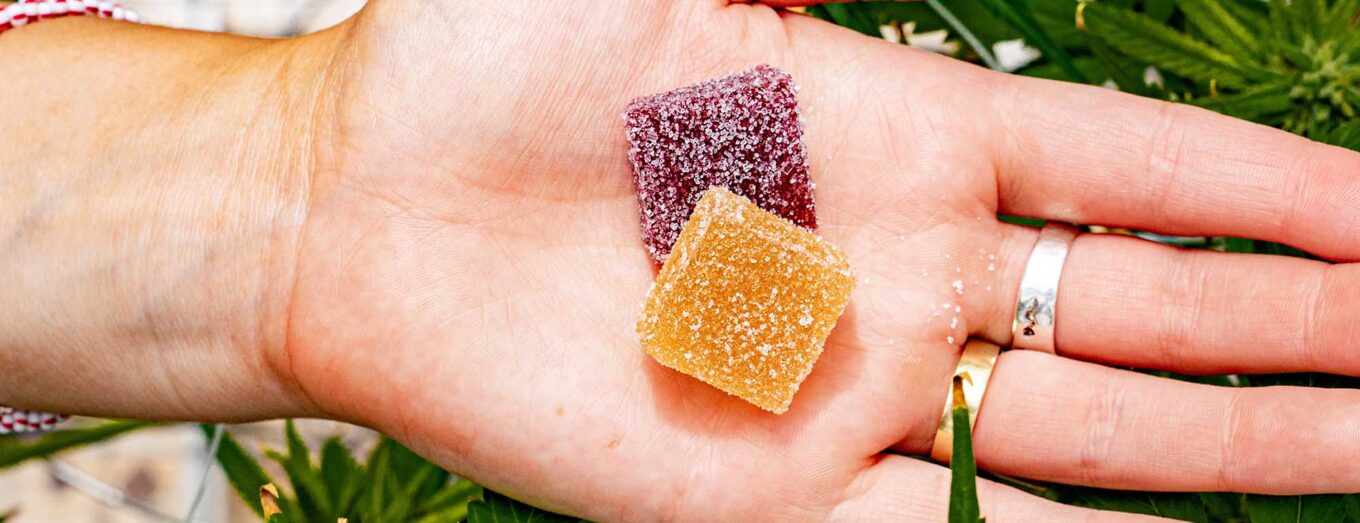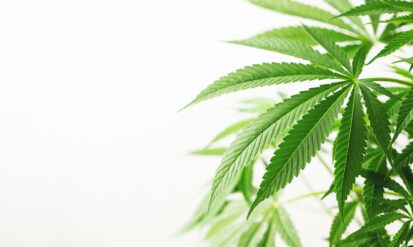As THC edibles become increasingly popular for their smoke-free, discreet, and long-lasting effects, many users wonder about the potential impact of these products on liver health. Since edibles are processed differently in the body than smoked or vaped cannabis, they raise unique questions about their effects on various organs, particularly the liver. This article takes a deep dive into how THC edibles interact with the liver, what the latest research suggests, and how to enjoy edibles responsibly.
If you're curious about exploring high-quality THC edibles, Options Cannabis CO offers a wide selection with safety and quality at the forefront. Visit their THC edibles page to learn more.
How THC Edibles Are Metabolized in the Body
The process of metabolizing THC in edibles is different from that of inhaled cannabis. When you consume an edible, it doesn’t deliver THC directly to the bloodstream, as smoking or vaping does. Instead, it must go through the digestive system and liver first, a process known as "first-pass metabolism." This is how it works:
- Ingestion and Digestion: After eating a THC edible, it enters the stomach and small intestine, where it’s broken down and absorbed.
- Liver Metabolism: Once the THC from the edible reaches the liver, it undergoes a transformation into a different compound called 11-hydroxy-THC. This metabolite is more potent than THC and can cross the blood-brain barrier more effectively, resulting in the stronger, longer-lasting high that edibles are known for.
- Systemic Absorption: After processing, the THC and its metabolites enter the bloodstream, leading to effects that can last anywhere from 4 to 12 hours, depending on various factors like dose, individual metabolism, and tolerance.
This complex digestive and metabolic process explains why edibles take longer to kick in but have more prolonged effects than smoked or vaped cannabis.
The Role of the Liver in THC Metabolism
The liver plays a central role in metabolizing THC, especially in the case of edibles. This process raises questions about the potential strain on the liver, especially for those who consume THC edibles frequently or in high doses. Since the liver is responsible for processing various substances—including medications, alcohol, and foods—regular or heavy edible use can contribute to its workload.
- First-Pass Metabolism Impact: The liver’s first-pass metabolism helps break down THC into 11-hydroxy-THC, which enhances the effects of edibles. However, this process may be challenging for those with pre-existing liver issues, as it requires more metabolic energy and enzyme activity than the liver expends in metabolizing THC from smoked or vaped cannabis.
- Potential for Strain with High or Frequent Doses: While moderate consumption may not significantly impact a healthy liver, repeated or high doses can add strain. Regular edible use may require the liver to work harder, potentially leading to oxidative stress over time.
- Interactions with Other Substances: Combining THC edibles with other substances that are metabolized by the liver—such as alcohol, medications, or supplements—could increase the liver’s workload, making it essential to approach edible use with awareness.
THC Edibles and Liver Health: What Does Research Say?
Scientific research on the effects of THC edibles on liver health is still evolving, but there are some valuable insights that can help guide responsible use.
- General Findings on Cannabis and the Liver: Studies on cannabis (primarily focusing on smoking) have shown mixed results. Some research points to the potential anti-inflammatory and antioxidant effects of cannabinoids like THC and CBD, which may benefit liver health under specific conditions. However, chronic and heavy cannabis use has been associated with liver stress in some studies, particularly in those who consume alcohol or have pre-existing liver conditions.
- Specific Effects of Edibles on Liver Function: Since THC edibles undergo first-pass metabolism, the liver plays a more significant role in processing them compared to inhaled cannabis. This means that edibles may have a stronger effect on the liver. While moderate use doesn’t appear to impact liver health in healthy individuals significantly, more studies are needed to understand the long-term effects fully, especially for frequent users.
- Considerations for People with Liver Conditions: Individuals with liver diseases, such as hepatitis or fatty liver disease, should approach edibles cautiously. For those with compromised liver function, THC metabolism may be slower, which can lead to prolonged effects and potentially increased liver strain. Consultation with a healthcare provider is advised for anyone with a liver condition who is considering THC edibles.
Factors Influencing the Impact of THC Edibles on the Liver
The effects of THC edibles on the liver can vary depending on several factors. Here are some considerations to keep in mind:
- Frequency and Dosage: As with many substances, the liver impact of THC edibles increases with dosage and frequency of use. Occasional or low-dose use is likely to be easier on the liver than frequent, high-dose consumption.
- Individual Health Conditions: Those with pre-existing liver conditions may process THC more slowly, potentially leading to more strain on the liver. Additionally, people with compromised liver function may experience stronger or prolonged effects from edibles.
- Interactions with Other Substances: Since the liver also processes alcohol and many medications, combining THC edibles with these substances can increase metabolic strain. It’s generally recommended to avoid consuming THC edibles with alcohol and to consult with a healthcare provider regarding any medication interactions.
Are THC Edibles Safe for Regular Use?
For healthy individuals, moderate use of THC edibles does not appear to pose significant risks to liver health. However, regular or heavy consumption may contribute to liver stress over time, especially in conjunction with other substances. Here are some guidelines to keep in mind for safe, responsible use:
- Practice Moderation: Using THC edibles in moderation can help reduce any potential strain on the liver. For instance, spacing out edible consumption and using lower doses may be beneficial for liver health.
- Monitor Your Body’s Responses: Everyone’s body processes cannabis differently. Pay attention to how you feel after consuming edibles, especially if you are a frequent user, and adjust your dosage and frequency accordingly.
- Choose Quality Products: High-quality edibles, like those available at Options Cannabis CO, are made with purity and safety in mind, reducing the likelihood of contaminants that could add stress to the liver. Options Cannabis CO’s THC edibles are crafted with care and meet strict quality standards, ensuring a safe experience.
Supporting Liver Health While Enjoying THC Edibles
If you’re a regular consumer of THC edibles, there are some ways to support your liver health:
- Stay Hydrated: Water aids in the body’s natural detoxification process, helping the liver process THC and other compounds more efficiently.
- Eat a Balanced Diet: Incorporating liver-friendly foods like leafy greens, garlic, and beets into your diet can provide antioxidants and nutrients that support liver health.
- Limit Alcohol Intake: Since alcohol and THC are both processed by the liver, reducing alcohol consumption can help balance your liver’s workload.
- Exercise Regularly: Physical activity helps maintain overall health, including liver function, and may reduce fatty deposits in the liver.
Alternatives to THC Edibles for Liver-Conscious Users
For individuals concerned about liver health, there are other cannabis consumption methods that bypass or reduce the liver’s role in processing THC:
- Sublingual Tinctures: These are absorbed under the tongue and enter the bloodstream directly, bypassing the liver and digestive system for faster effects.
- Topicals: Cannabis-infused creams, balms, and patches are applied directly to the skin and interact with local cannabinoid receptors without entering the bloodstream, making them safe for the liver.
- Vaping or Smoking: Although inhaling cannabis has respiratory considerations, it bypasses first-pass metabolism, reducing the liver’s role in processing THC.
Edible Dosing and Responsible Consumption
Proper dosing is essential for enjoying THC edibles responsibly and supporting liver health. Here are some tips to find the right dosage:
- Start Low and Go Slow: If you’re new to edibles, begin with a low dose, around 5–10 mg of THC, and wait at least two hours to assess the effects before taking more.
- Know Your Limits: With time, you’ll find the dose that provides desired effects without overwhelming your system. Sticking to your personal tolerance can help prevent liver strain.
- Avoid Combining with Alcohol: Since both substances rely on the liver for metabolism, avoid consuming edibles with alcohol to minimize liver stress.
The Bottom Line: THC Edibles and Liver Health
For most healthy individuals, occasional or moderate THC edible use is unlikely to harm the liver. However, regular users or those with pre-existing liver conditions may want to exercise caution. Choosing high-quality products, practicing moderation, and supporting liver health through lifestyle choices can help ensure a safe and enjoyable experience with THC edibles.
For a trusted source of edibles made with quality and safety in mind, check out the selection at Options Cannabis CO. Their THC edibles are crafted to provide reliable and enjoyable effects, helping you enjoy cannabis responsibly and safely.
Ultimately, by understanding how THC edibles interact with the liver and practicing mindful consumption, you can incorporate these products into your wellness routine in a way that aligns with your health goals.





